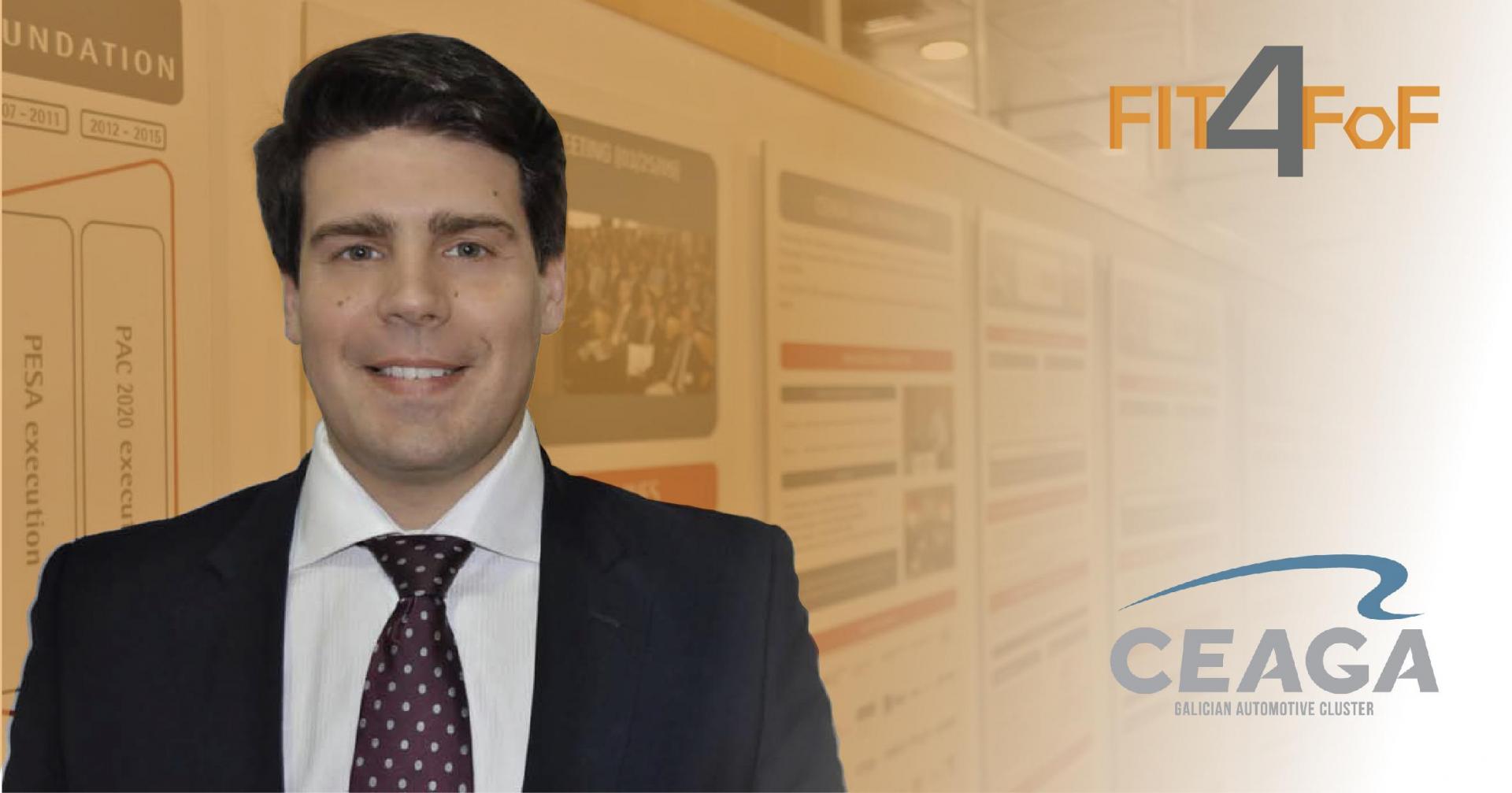"Communicating is part of the process and we must give it the importance it deserves"

Borja Dapena is Project Manager at CEAGA, the Galician Automotive Cluster and also member of the FIT4FoF. Here he asked him some questions about the project, the development of the pilot and the organisation of the final event of the FIT4FoF
What is the reason to participate in the FIT4FoF project?
From the Galician Automotive Cluster, we work every day to know and detect the needs and challenges of the companies in our sector, with the aim of helping them in the best way possible. The FIT4FoF project comes from the Strategic Plan of the Sector (P3CA), and it was from CEAGA where the first steps were taken to form the consortium and focus the proposal that was finally selected by the European Commission. We are the only Spanish partner participating in this project and we are very proud of the work done during these 3 years.
How has the CEAGA training pilot been developed?
After the co-design process of the training programme with the participation of different profiles (production managers, employees, general managers, etc.), where we had the support of UCN, we focused the organisation of the pilot on introducing the participants to the basic and general concepts of Industry 4.0, i.e. giving them an introduction to what they can do with these technologies.
CEAGA, as a cluster, is very connected with the companies and entities in its environment, so we already knew which agents to contact so that they could collaborate with us in the development of the Pilot. We also knew the Aula 4.0 of the Centre of Vigo of Stellantis, ideal to start the training through the key concepts and demonstrations that can be carried out there. Another important place was the FP Centre of Coia (Vigo), taking advantage of the educational resources available in the region and offering the students the opportunity to expand their technical knowledge with the help of specialised professionals. The idea was to use the existing resources in our regional ecosystem.
This pilot was planned with the main idea of providing the workers in the Sector who participate with the necessary knowledge and skills to face the new developments in the industry, so that they are aware of the new technologies and applications that will appear sooner or later in their jobs. This first edition of the pilot has served to really get to know the response of the workers and what they expected from this training, and we know that when the training is replicated, either in Spain or in other countries, all these comments will be useful to improve and thus achieve an education that will help these workers to progress.
Apart from the pilot, what is CEAGA's role in the project?
CEAGA's main role is to carry out the pilot training (WP5), to identify upskilling initiatives in Europe (WP1) and, above all, to coordinate the communication and dissemination of the project. The creation of a coherent visual image and the various project materials currently used by the partners, such as brochures, presentations, templates and banners, as well as the day to day social media and the updating of the website is part of CEAGA's work.
We have more than 10 years of experience in collaborative project communication, so we are happy to bring our best expertise to the table. Sometimes it can be a challenge to coordinate the messages of nine different entities, as people do not have the time to focus so much on this aspect, and we understand that, but communicating is also part of the process and we must give it the importance it deserves. For this reason, our mission is also to offer all communication resources and materials to our partners in a way that is easy for them, while at the same time making the communication impact greater and more effective.
How was the coordination of the final event?
The idea we had was to have a face-to-face event in Brussels, so that it would be a central location for all invited partners and stakeholders. However, covid forced us to change our initial idea.
That is why we worked to make this event part of a larger event, with several editions already held in the past and whose theme fits perfectly with that of the FIT4FoF project, such as Skillman International Forum (SIF 2021), which had more than 650 registered attendees from 77 countries from both Europe and other continents. Skillman members have been very attentive and we have maintained continuous contact with them in the preparation of these sessions, both in the previous ICoED workshop and in the support to manage the final event. It has been a few weeks of hard work right up to the last minute, but in the end we are happy with how the event went and the response from the attendees.
The fact that the Forum was both online and in person was a great option, as we understand that, in the situation we are in, not everyone can travel. Moreover, by opening the door to online viewing of the event, it has made it possible for people to attend the event who might not have been able to come in person.